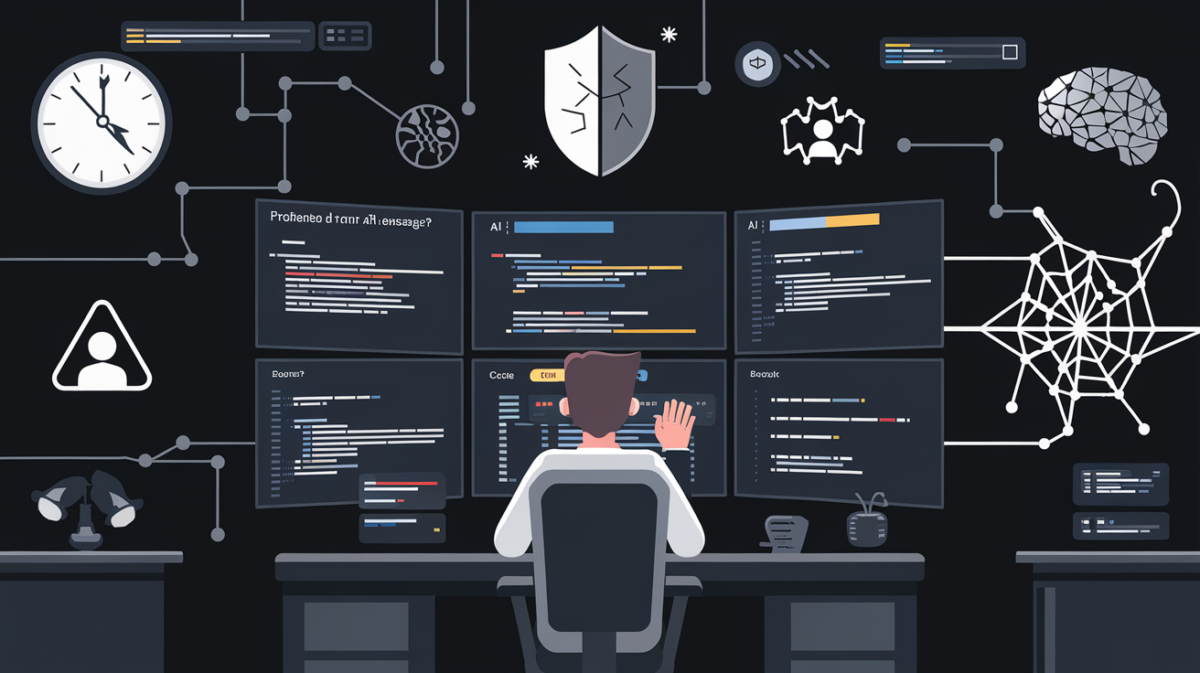Artificial intelligence (AI) has revolutionized many industries, and software development is no exception. AI-powered coding assistants promise to streamline workflows, reduce errors, and boost productivity. However, recent research and expert opinions suggest that these tools may not be the panacea they were once thought to be. In fact, they might even be slowing down experienced developers.
The Productivity Paradox
A study conducted by the AI research nonprofit METR revealed a surprising trend: experienced developers using AI coding assistants like Cursor took 19% longer to complete tasks on familiar codebases. The reason? The additional time spent reviewing and correcting AI-generated suggestions often outweighed the benefits of automation.
This finding challenges the widespread assumption that AI tools universally enhance efficiency. Instead, it highlights a critical gap between the promise of AI and its real-world application.
Quality and Security Concerns
Beyond productivity, AI-generated code raises significant quality and security issues. Unlike human developers, AI lacks the nuanced understanding of context, leading to:
- Incorrect or outdated algorithms: AI may suggest solutions that are no longer considered best practices.
- Security vulnerabilities: Without a deep understanding of the codebase, AI can introduce flaws that compromise security.
- Lack of adaptability: AI struggles with unique or complex problems, often providing generic solutions that don’t fit the specific needs of a project.
These shortcomings underscore the importance of human oversight in software development.
The Risk of Over-Reliance
Another growing concern is the potential erosion of fundamental programming skills. Developers who rely too heavily on AI tools may:
- Lose proficiency in problem-solving and critical thinking.
- Become less adept at debugging and optimizing code manually.
- Struggle with tasks that require creativity or innovation.
This dependency could create a generation of developers who excel at using AI but lack the foundational skills to work independently.
Impact on Community and Mentorship
The rise of AI coding assistants also threatens the collaborative nature of the developer community. Platforms like Stack Overflow and Reddit have long served as hubs for knowledge sharing and mentorship. If developers turn to AI for answers, these vibrant communities could dwindle, depriving newcomers of valuable learning opportunities.
Limitations in Complex Tasks
AI tools excel at handling straightforward, repetitive tasks but falter when faced with complex challenges. For example:
- Multi-file projects with intricate logic often confuse AI assistants.
- Novel problems that require innovative solutions are beyond their current capabilities.
This limitation means that AI is far from replacing human developers, especially in advanced or specialized fields.
Balancing AI and Human Expertise
While AI coding assistants offer undeniable benefits, their limitations cannot be ignored. Developers should view these tools as supplements rather than replacements for their skills. Here’s a quick comparison of the pros and cons:
| Aspect | AI Coding Assistants | Human Developers |
|---|---|---|
| Speed | Fast for simple tasks | Slower but more thorough |
| Quality | Prone to errors | Higher accuracy |
| Creativity | Limited | Highly adaptable |
| Learning Curve | Easy to use | Requires experience |
Conclusion
AI coding assistants are powerful tools, but they are not without drawbacks. From productivity slowdowns to security risks, their impact on software development is far from straightforward. Developers must strike a balance—leveraging AI for efficiency while preserving their core skills and the collaborative spirit of the programming community.
As the technology evolves, so too must our approach to integrating it into the development process. For now, the human touch remains irreplaceable.







